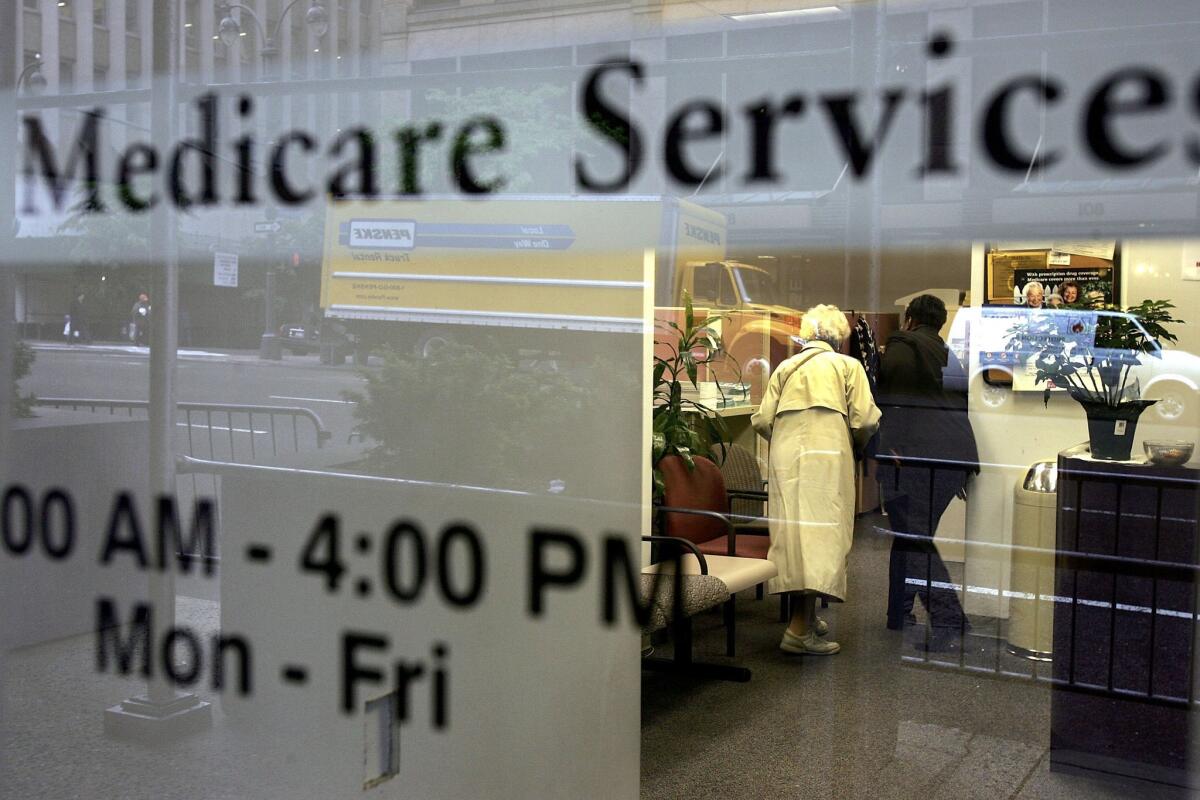Editorial:: It’s past time for Congress to pass Medicare reform

House Republicans have no qualms about leaving millions of low-income Americans without health coverage, as evidenced by their repeated votes to repeal Obamacare. But they’re so skittish about reducing access to Medicare, the federal insurance program for senior citizens and the disabled, that they may vote for a bill to shore up the program in defiance of their party’s deficit hawks. It’s past time they did.
At issue is the “sustainable growth rate,” a mechanism that Congress adopted in 1997 to hold down the cost of Medicare’s Part B coverage for physicians’ services. Under the SGR, if the cost per Part B enrollee grows faster than the economy, the fees paid to physicians have to be cut deeply enough to offset the excess. Doctors have persuaded Congress repeatedly to postpone the cuts, arguing that the reduced rates would prompt physicians to accept fewer Medicare patients. But the required SGR cuts have grown with each postponement, and are now so large that Congress can’t let them go into effect without risking an exodus of doctors from the program.
Last year, leaders of three congressional committees worked out a bipartisan plan to replace the SGR with a mechanism that fundamentally changes Medicare’s financial incentives. Instead of simply paying doctors a fee for each service delivered, which rewards quantity and high-intensity care, the proposed change would have motivated them to shift into reimbursement plans that reward efficient, high-quality care. Nevertheless, the Congressional Budget Office estimated that the bill’s 10-year cost would be $138 billion higher than if Congress left the SGR in place, based on the indefensible assumption that the SGR cuts would have gone into effect as scheduled. Unable to agree on how to pay for the proposal, Congress postponed the SGR cuts yet again. A reduction of 21% will take effect April 1 unless Congress acts, and lawmakers are no closer to covering the cost of the alternative.
Rather than postponing the cuts for the 18th time, lawmakers may finally be ready to embrace last year’s plan, which looks more expensive than it really is. It’s vital for Medicare and taxpayers alike that lawmakers address the perverse incentives that promote excessive doctor visits and treatments. The bill being negotiated would have the added benefits of extending the Children’s Health Insurance Program for lower-income kids, as well as renewing other expiring health programs. The package is likely to offset a portion of its cost by tapping Medicare providers and beneficiaries, such as by charging high-income beneficiaries larger premiums and requiring private policies that supplement Medicare to impose at least a small deductible to discourage overuse. It would be better if Congress could find a way to cover the full cost of replacing the SGR, but that’s not an option. The proposed reform is a rare example of a truly bipartisan effort to improve Medicare, and lawmakers can’t afford to pass it up.
Follow the Opinion section on Twitter @latimesopinion and Facebook
More to Read
Start your day right
Sign up for Essential California for news, features and recommendations from the L.A. Times and beyond in your inbox six days a week.
You may occasionally receive promotional content from the Los Angeles Times.






